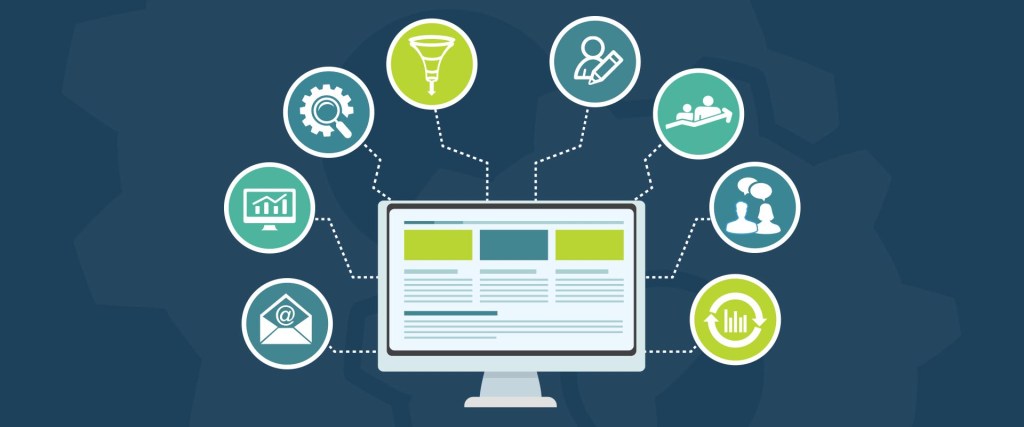Providing the best services in digital solution to the customer in your organization or business has become almost necessity that cannot be overlocked to ensure that it remains in competition in the market and achieve the maximum benefits one of the latest technological technologies used in the market is (Blockchain technology), which was originally designed to support the infrastructure of cryptocurrencies, especially the currency (Bitcoin).
After the spread of Digital currencies and Bitcoin companies noted that Blockchain technologies are not only limited to that but can have major implications for the future of the facility, business, and security. It is likely to affect every major business area, especially when knowing that 32% of companies are in that stage of developing their Blockchain project.
According to the International bankers, Blockchain-based solutions could generate bake revenues of about $380 Billion.
What is Blockchain technology?
It is a decentralization database, meaning that the data is not stored in one place, but rather the data records are stored on the computers of the participants of the central one, the added files cannot be changed or modified in any way except with the approval of 51% of devices on the network, which prevents fraud and theft. You will understand how it works below.
Blockchain is a technology that allows consumers and companies to track transactions from beginning to end without having to consult a central authority charged with a transaction or encrypting data, so it provides transparency in what happens in the transactions and makes them more secure.

How Blockchain technology works:
Data is stored in the Blockchain network in blocks. Each block contains detailed information about one of the operations that took place on the network, and after storing it, The stored data is encrypted and a hard-to-penetrate lock called (Hash) is placed on it. This process is repeated many times, and the information is stored and encoded in the form of an endless series of blocks.
Reason for calling
The reason is due to its components as it consists of a group of transactions or operations that each one of them is stored in the form of a block, then distinct encryption is made for this block of information, and then it is added to blocks of “previous transactions” and thus a chain is formed.
Blockchain features:
Security
Blockchain uses a high level of security and encryption on the database that makes it impossible to penetrate due to the decentralization used.
Transparency
You can track any process that takes place in the network, this eliminates the chances of any fraud.
Decentralization
The recorded data is not stored in one place, but on every device shared in the Blockchain network, and this prevents any attempt to penetrate the network.
Time-Saving
You can send and receive money and documents within minutes, unlike the current system used in the banking sector.
Reducing operating expenses
Blockchain technology is the least expensive model compared to the widespread technologies, especially within the banking sector. Statistics show that more than $100-150 Billion will be saved by 2015 after its adoption.
There is no booker in transactions
There are no middlemen in Blockchain operation and that is basically how it works.
Preservation of Property Rights and Resources
Because Blockchain technology records any process that takes place on the network from its inception, this will facilitate knowing the source of anything, this will contribute to preserving intellectual property and preventing theft.
Prevent data leakage and piracy.
It helps to discover any defects in transactions and the extent of their validity.
How will Blockchain technology affect businesses:
The most important advantage of Blockchain is to simplify the business process and reduce the parties involved in the information exchange process. Blockchain technology enables you to track the information and resources you need and enter into smart contracts to automatically execute business agreements.
Blockchain technology builds trust between the many parties without knowing each other, to facilitate the process of trade.
Blockchain helps make it easier and more accurate.
The transparency provided by Blockchain technology can help a financial auditor by reducing the time spent on verifying information and auditing accounts, for example.
Blockchain technology contributes to its development and creates solutions to So-called “Advertising fraud”.
In an interesting statistic conducted by Juniper Research, it is expected that by the year 2022 advertisers will incur losses of $44 Billion due to “Advertising Fraud”. Blockchain technology can help marketers and advertisers reach their true marketing goals by managing the marketing campaign, preventing fraud, and removing middlemen.
Blockchain technology helps the specialized employees in managing and employing the human factor by providing accurate information without tampering with the mediators, as well as paying the employee’s salaries immediately after completing their work through accurate software that does not make mistakes and submitting the identification documents to the concerned partly automatically.
Blockchain technology will increase the efficiency and transparency of the supply chain, positively impact everything from warehousing to delivery and payment, and facilitate the payment process without being bound by the terms of traditional banks.
Blockchain technology contributes to the process of tracing every product back to the main source.
Blockchain technology will help through smart contracts, digital currencies, and trusted records to facilitate the completion of buying the brokers’ commotion and buying automatically by algorithms after fulfilling the agreed terms.
Process payment with high efficiency, fast and secure transactions.
Blockchain relies on the presence of cloud storage services to increase security due to data storage on a decentralized network.
Blockchain technology will help protect the millions of data transmitted between IoT devices
Blockchain technologies can help create accurate legal data and evidence that saves significant effort and time for law firms.

How will Blockchain technology affect government services:
- Digital ID and passports: Reducing the burden of paperwork, blocking counterfeit passports, and monitoring illegal escapes.
- Voting and election System: Prevent fraud and manipulation of voting during elections.
- Healthcare: Transparency and automation of patient and hospital data and the patient can also view his hospital record.
- Secure storage, citizen, and business data.
- Increase confidence in government and civic system online.
Challenges and difficulties facing Blockchain technology:
1.Lack of regulatory oversight
This problem facing people concerned with trading cryptocurrencies such as Bitcoin and other digital currencies. This lack of laws and oversight bodies for Blockchain technology makes many people fear its use within their organizations.
2. The complexity of Blockchain technology for the normal user:
The normal user finds it difficult to appreciate the benefits of Blockchain technology.
Therefore, some countries, such as the United Arab Emirates and the Kingdom of Saudi Arabia, have conducted awareness campaigns for citizens about the benefits of Blockchain technology and how it contributes to making their lives easier.
3.Banks have an interest in Blockchain failure:
The banking system adopted in “banks’ currently achieves huge sums by playing the role of mediator in operations and agreements. Blockchain technology came to reduce the middlemen involved in the process and reduce the cost users pay when conducting any transaction.
4.Contribution and Regulation:
With the challenge facing Blockchain technology, this requires a tremendous amount of cooperation between facilities and competitors, and an agreement on how to manage the system and investment.
There is a global trend of large companies to integrate Blockchain technology into their organization.
The most important statistics about the oncoming future of Blockchain technology:
- More than $270 Billion has been transferred using Blockchain technologies since 2010, thus surpassing western union, which is responsible for managing and transferring $5 Billion. (Source: DW)
- 60% of CEO’s are also to integrate Blockchain technology into their infrastructure by the end of 2020.
- By late 2019, the number of Blockchain wallets reached 47 million e-wallets. (Source: Bitcoin com)
- 5% of the world’s population uses Blockchain technology or nearly 50 million people, and this number is expected to quadruple within 5 years. (Source: ssir.org)
- 71% of business leaders expect Blockchain technology to play a significant role in advancing business technology. (Source: SAP)
- 90% of government agencies and organizations plan to invest in Blockchain (Source: BTC manager)
- By 2022, global spending on Blockchain technology solutions will reach $12 Billion.
- Blockchain technology can reduce 30% of banks’ infrastructure costs.
Conclusion
Blockchain technology with smart contracts and digital currencies will make commerce and government operations safer, faster, more efficient, and scalable. The economy will continue its path towards Blockchain and decentralization as more companies join the market.
In conclusion, it is very important to view this technology with great importance and anticipation, as Blockchain technology is not an emergency phenomenon and it seems to disappear, but rather a phenomenon that expected to take root more and more, as the future of Blockchain technology and its markets is growing very large and fast.













